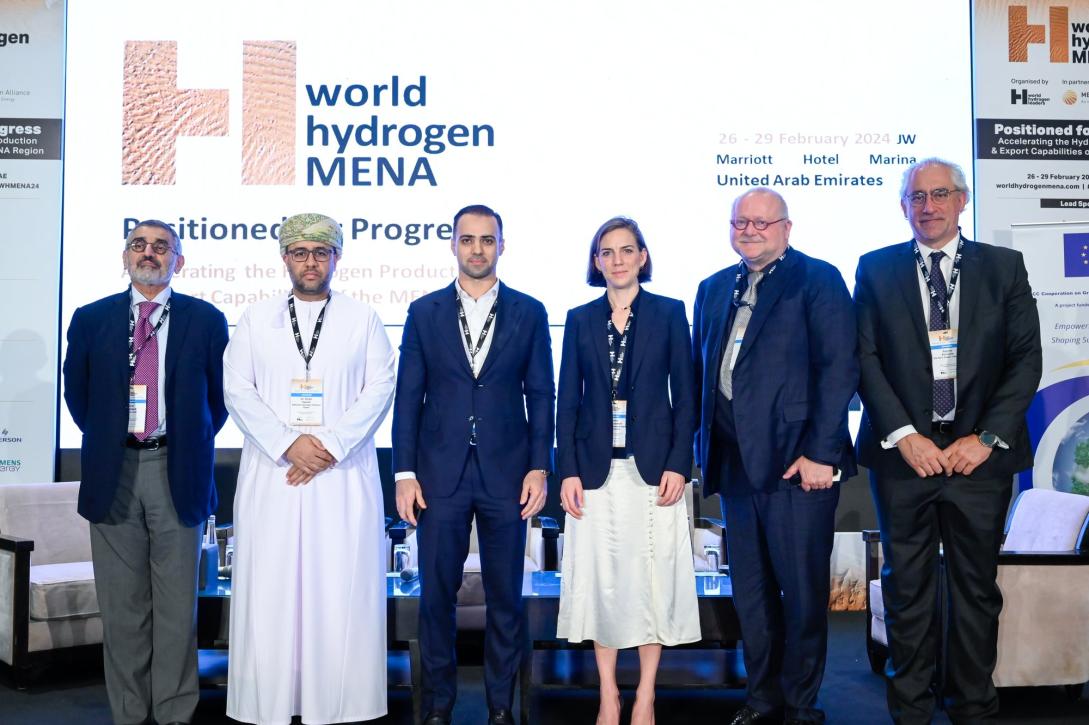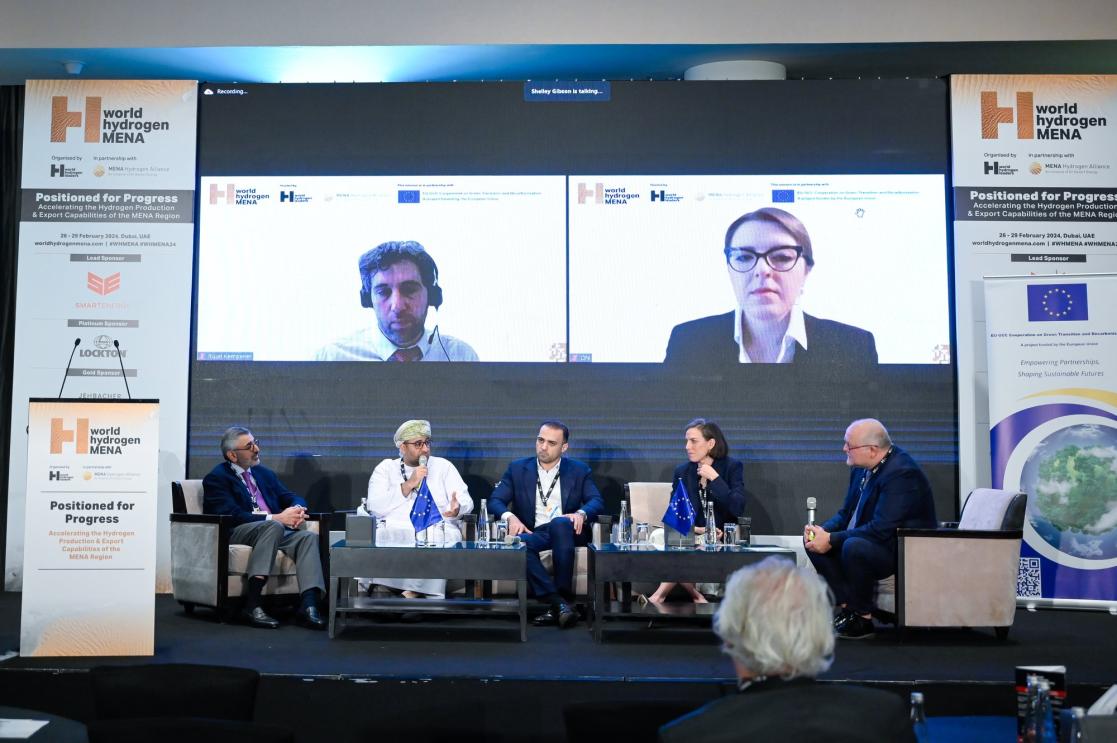EU-GCC event at World Hydrogen MENA Conference

Following the success of the EU Renewable Hydrogen side event at the Oman Renewable Hydrogen Summit, the event attracted over 70 attendees, including high-level representatives from the European Commission, government officials from Oman, and specialists from regulatory bodies, businesses, and investment firms.

EU GCC Green Transition Project
Key speakers at the panel discussion included Ruud Kempener from the EU Commission, Dr Khalil Hanshi from the Ministry of Energy and Minerals in Oman, Hammad Masood from ACWA Power, Daria Nochevnik from the Hydrogen Council, Kirsten Raeymaekers from Port of Antwerp-Bruges International, and Wa’el Almazeedi from Avance Labs.
The discussion delved into several crucial topics, including hydrogen global trade and certification, the EU's leadership in implementing regulations like the Carbon Border Adjustment Mechanism (CBAM), regulatory alignment with market demands, and the significance of international collaboration in certification processes.
Key takeaways from the panel discussion include:
Hydrogen Global Trade and Certification: The EU emphasizes emission-reducing standards and independent certification issuers to facilitate global trade. However, concerns were raised about the complexity of EU regulations impacting financing and industry development, leading to a market shift towards Asia.
EU's Leadership in Implementing Regulations: The EU's strict regulations on renewable and low-carbon hydrogen aim to meet 2030 targets, promoting transparency and carbon neutrality. The Carbon Border Adjustment Mechanism (CBAM) levels the playing field for imported products, reflecting a broader shift towards a carbon-neutral economy.
Regulatory Alignment and Collaboration: Aligning regulations with market needs and fostering international collaborations are essential for a globalized hydrogen production and market development approach. Initiatives like the Hyport project in Oman aim to bridge gaps between market dynamics and regulations.
Challenges and Opportunities: Challenges include tracking certification throughout the supply chain and addressing regional differences in CO2 footprints. However, initiatives like mutual recognition letters and standardized methodologies aim to foster global value chains and establish a global hydrogen market.
In closing remarks, Daria Nochevnik highlighted progress in compliance and efforts towards mutual recognition and certificate fungibility. She also noted that lessons from other markets inform the gradual development of a global hydrogen market and emphasize the importance of stakeholder cooperation for market reliability.
The panel discussion provided valuable insights and paved the way for further collaboration between the EU and GCC countries in advancing the shared agenda of renewable hydrogen development.





